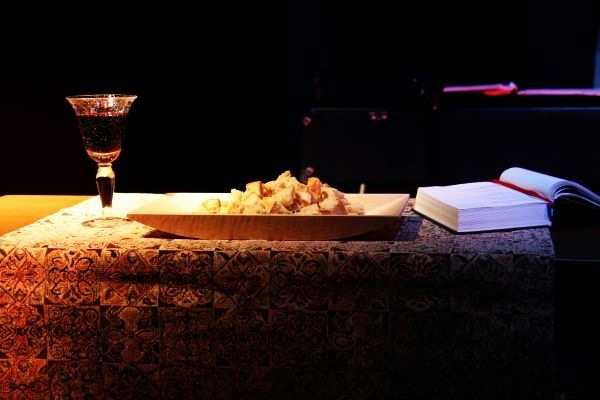This is the second hymn Metanoia played at yesterday’s Blessēd big bash in The Big Top at Greenbelt. It’s going to make a few appearances at The Rock Mass over the next year or so.
The Good Samaritan Animation
I’ve spent the last four weeks doing activity days with 5-11 year old’s at Holy Nativity. Today we looked at The Good Samaritan and “who is my neighbour”? Two minutes and seventeen seconds of animation isn’t going to fill your four hours up but they all shouted “let’s watch it again” afterwards.
I think it is cute.
Jesus Like a Mother…
A song of Anselm of Canterbury
Jesus, as a mother you gather your people to you:
You are gentle with us as a mother with her children;
Often you weep over our sins and our pride:
tenderly you draw us from hatred and judgement.
You comfort us in sorrow and bind up our wounds:
in sickness you nurse us,
and with pure milk you feed us.
Jesus, by your dying we are born to new life:
by your anguish and labour we come forth in joy.
Despair turns to hope through your sweet goodness:
through your gentleness we find comfort in fear.
Your warmth gives life to the dead:
your touch makes sinners righteous.
Lord Jesus, in your mercy heal us:
in your love and tenderness remake us.
In your compassion bring grace and forgiveness:
for the beauty of heaven may your love prepare us.
Equals at God’s Table

There is something wonderful about the way George Guiver CR embodies his vocation as a monk in a way that enables him to speak so freely about the nature of The Church TM. I’m currently reading his new book Vision upon Vision: Processes of Change and Renewal in Christian Worship. I was so struck by this passage that I typed it out on my phone!
God was not to be defined first in abstract terms, but by what happens in the basilica as the Eucharist is celebrated by the gathered believers… People can be puzzled by talk of the Eucharist making the church manifest, but one way in which this is clearly true is the fact that all people gathered – from presiding clergy to rulers and magistrates, shopkeepers and urban poor – are equally prophets, priests and kings, and their relationship is one of communion, in the scriptures, in the kiss of peace, and in sharing the Supper of The Lord. The Christian liturgy is utterly egalitarian: we are all equal in the sight of God. Toffs rub shoulders with vagrants….
In subsequent history the equality of all was often violated when ruling elites came to treat the church as their possession: those creepy English village churches in the grounds of mansions, rebuilt in elegant taste and run by local gentry, are one example of this. But there has always been a gospel law by which one day they would be found wanting…
The drama of the liturgy, then, needs to be performed in such a way that it corresponds to the nature of God and is an icon of God. This way already exists, and our part is to uncover it.
This is the unease I feel as an Anglican each time I am introduced to a colleague with such qualifying phrases as “of course his father was dean at…” There was of course the time I was genuinely told that “they are one of the ‘big families’ in the Church of England nationally”. I just can’t square these concepts with the table we gather around or the Jesus movement we have signed up to.

